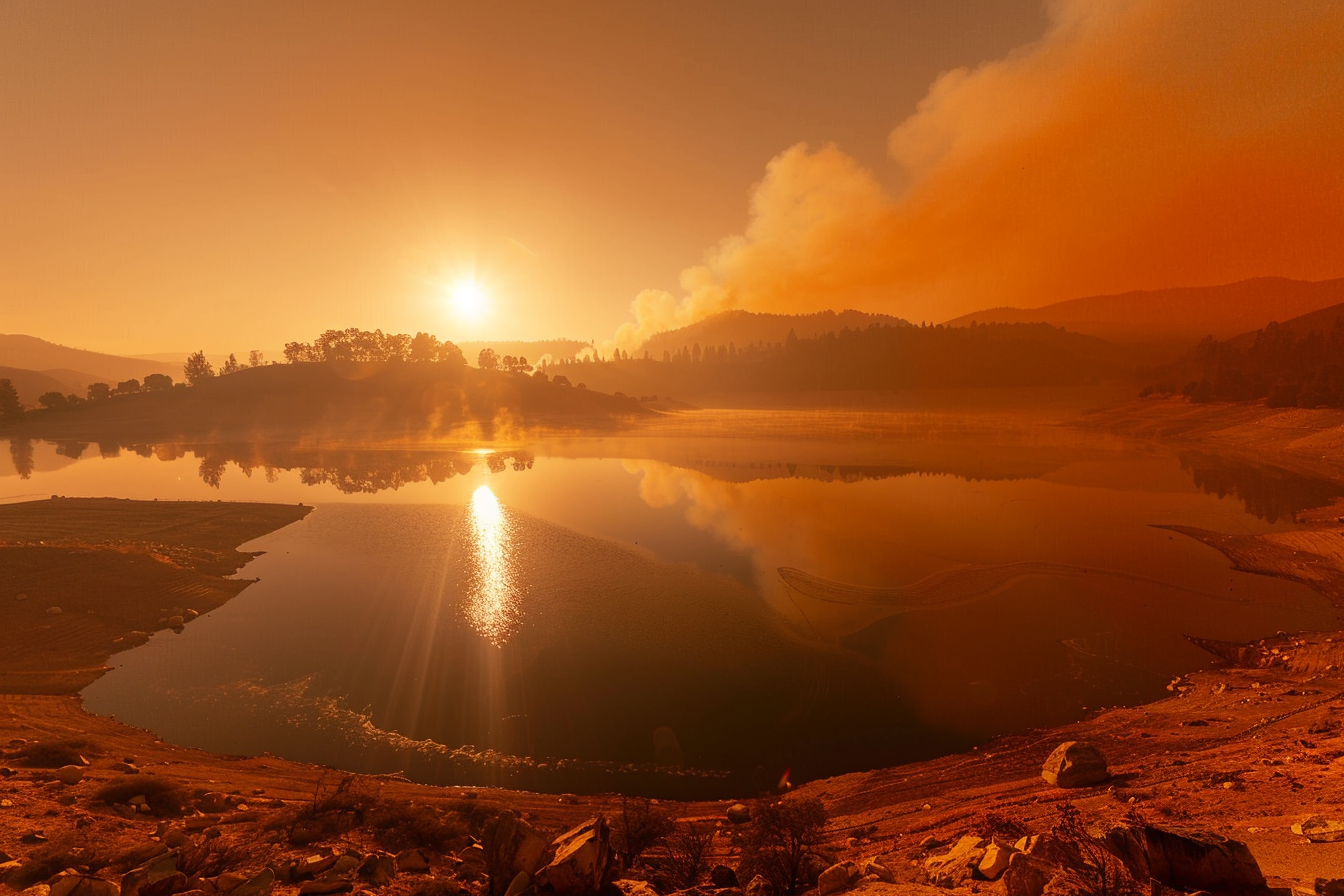"99% of lakes experienced at least 10 smoke-days annually, with almost 90% facing over 30 smoke-days."
Study Reveals Widespread Impact of Wildfire Smoke on North American Lakes
Posted: February 18, 2026

Wildfire activity is becoming more frequent and severe worldwide, resulting in extensive smoke plumes.
These smoke plumes travel great distances and can persist for long periods, impacting sunlight filtration and transporting fine particulate matter that affect numerous ecosystems. Authors of a recently published study found that "99.3% of North America was covered by smoke,” a total of 1,333,687 lakes larger than 10 hectares.
Wildfire smoke impacts lake ecosystems published in the open access Global Change Biology in June 2024 highlights that “greenhouse gas emissions from wildfires now contribute a fifth of the total annual global carbon (C) emissions.”
Dust^2 Cluster member Janice Brahney based at the Department of Watershed Sciences and Ecology Center at Utah State University is among the co-authors of this study which introduces the concept of the "lake smoke-day," defined as “the number of days any given lake is exposed to smoke in any given fire season.”
Nearly 99% of these lakes experienced at least 10 smoke-days annually, with almost 90% facing over 30 smoke-days.
Some lakes were exposed to up to four months of cumulative smoke-days.
Smoke affects lakes by depositing carbon, nutrients, or toxic compounds, which can significantly impact biogeochemical processes.
Lakes are particularly vulnerable to smoke due to their role as integrators of terrestrial and aquatic processes. The study notes that smoke alters thermal regimes within ecosystems, affecting organisms from physiology to behavior.
The atmospheric nature of smoke means its effects can span vast spatial scales, widely impacting ecosystems.
The authors emphasize the importance of understanding smoke effects on lakes to predict and manage their responses. They note the need for detailed characterization and quantification of smoke and ash attributes.
Existing monitoring programs, like the Global Lake Ecological Observatory Network, will be vital for coordinated analyses.
The increasing frequency and intensity of wildfires necessitate a better understanding of their impacts on lakes.
Wildfire smoke impacts lake ecosystems underscores the importance of lakes as sentinels of wider landscape-level changes associated with smoke and ash deposition.
Drawing on research from diverse disciplines will be key to advancing our understanding of these environmental impacts.
Authors: Mary Jade Farruggia, Janice Brahney, Andrew J. Tanentzap, Jennifer A. Brentrup, Ludmila S. Brighenti, Sudeep Chandra, Alicia Cortés, Rocio L. Fernandez, Janet M. Fischer, Alexander L. Forrest, Yufang Jin, Kenneth Larrieu, Ian M. McCullough, Isabella A. Oleksy, Rachel M. Pilla, James A. Rusak, Facundo Scordo, Adrianne P. Smits, Celia C. Symons, Minmeng Tang, Samuel G. Woodman, Steven Sadro

 Dust^2
Dust^2